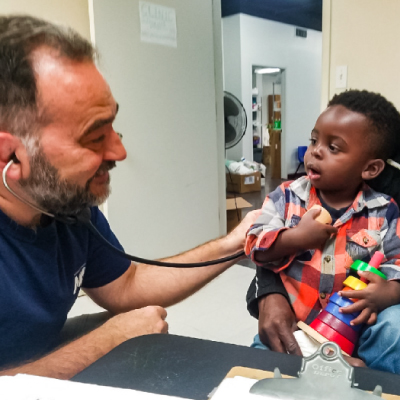- Who We Are
- Clinician Employment
- Publications
- Witness to Witness (W2W)
- Kugel & Zuroweste Health Justice Award
- Your Voice Matters: Photovoice Project
Fri, 11/21/2014 | by Edward Zuroweste

Editor’s Note: MCN’s Chief Medical Officer Dr. Ed Zuroweste is in West Africa to provide trainings to incoming clinicians on properly treating Ebola at Ebola treatment centers (ETCs). This is Ed’s second journey to Africa to assist in training clinicians on emergency response. This time, he is stationed in Guinea and Sierra Leone, at the epicenter of the Ebola outbreak. His weeks there are sponsored by the World Health Organization (WHO), which has organized the trainings. This is Ed’s second update, from his first few days in Sierra Leone. Ed assured us multiple times in his emails to MCN staff that he is staying safe. Read Ed’s first post from Guinea here.
We are training another group of Cuban clinicians here at a soon-to-be opened Ebola treatment center (ETC) up in the mountains, about an hour from Freetown, which is right on the ocean.
This is phase two of the training, where we utilize patient actors, who are given real patient histories and physical complaints to act out, and the clinicians (dressed in their complete personal protective equipment [PPE], and sweating like crazy) have to ask the right questions, make the right decisions, and simulate all of the clinical procedures that the case requires, while I am responsible to make sure they do it right and to help them when they get stuck.
During last week’s training in Guinea, our patient actors were nurses who were working in an ETC, but, here in Sierra Leone, we are really fortunate to have five Ebola survivors as patient actors. These are all young people from the local community who have recently been infected with Ebola and survived -- three men and two women.
During some down time today, I asked a couple of the survivors how they got infected with Ebola. One handsome and smiling young man in his early 20s told me that he got infected from his fiancée, who later died of Ebola -- as did his father and his only two siblings. This unbelievably horrible situation has occurred in his life in just the last six weeks. He was only cured and sent home two weeks ago. Now, he is volunteering to help train these Cuban physicians and nurses, so they can help save other individuals in his community. I cannot tell you how much respect and admiration and true sadness I felt for this young man today.







